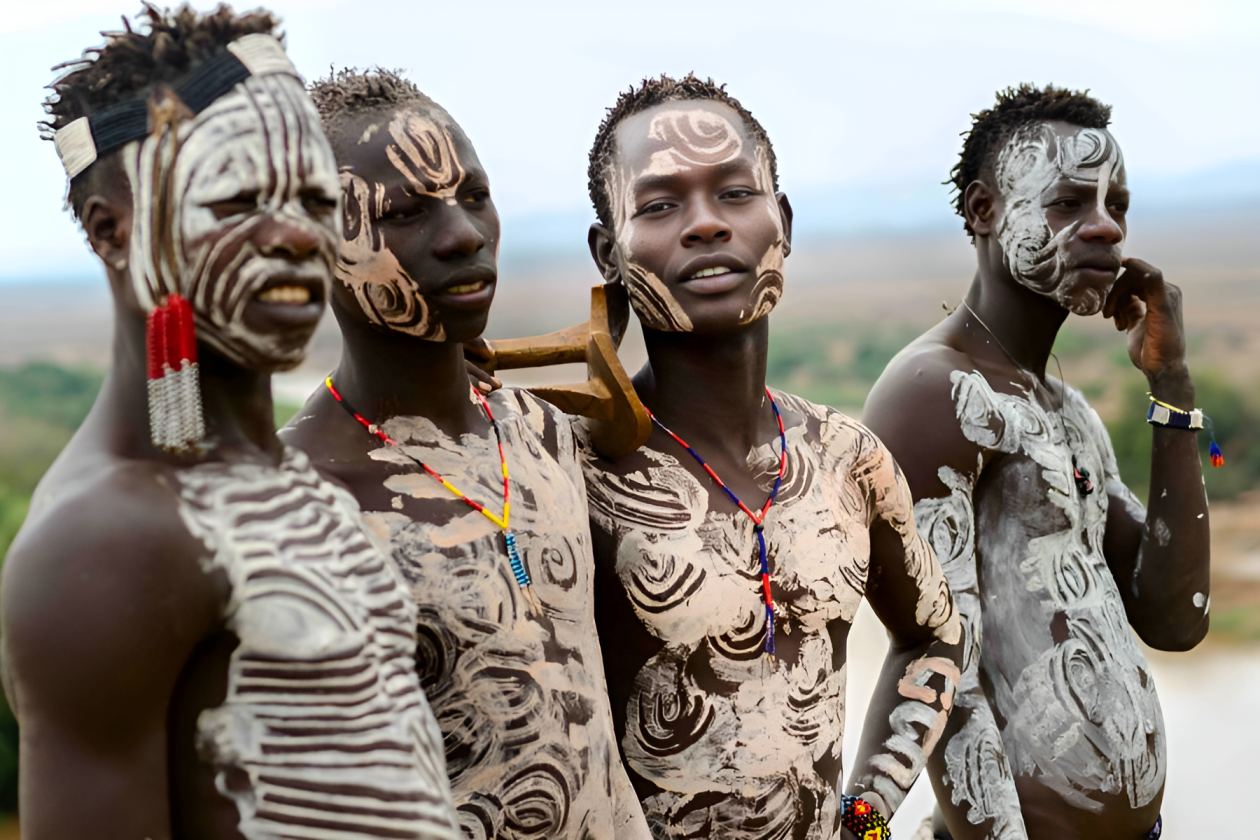Culture: The blood ceremony of the Suri tribe

It is not a celebration, nor a punishment, it is a passage, a test, and a bond.
Deep in the Omo Valley of southwestern Ethiopia, the Suri tribe preserves a tradition that both fascinates and unsettles the outside world, the Blood Ceremony, a ritual that connects body, spirit, and survival in ways few outsiders can fully comprehend.
At dawn, when the mist still clings to the acacia trees, young Suri men gather in the cattle kraals, barefoot and bare-chested.
It is not a celebration, nor a punishment, it is a passage, a test, and a bond.
Central to this tradition is the sacred act of bloodletting from cattle, a centuries-old ritual that links the tribe’s identity to its most precious resource: livestock.
A small incision is made in the neck of a bull using a sharp spear, and the blood flows into a gourd.
No harm is meant to the animal; in fact, the Suri treat their cattle with reverence, naming them, speaking to them, and relying on them not only for milk and blood, their main sources of nourishment, but also as markers of wealth, status, and legacy.
The young men drink the fresh blood raw, often mixed with milk, as a demonstration of their endurance and purity. To them, blood is not grotesque, it is a sacred sustenance, a life-force shared between man and beast.
Elders believe that this ritual strengthens the spirit, enhances fertility, and prepares warriors for the physical and psychological rigors of adulthood.
But this ritual is more than just about nutrition or tradition, it is a rite of resilience, woven into the fabric of a people who have long resisted colonization, outside influence, and the encroachment of modernity.
The Blood Ceremony is also a reminder of the tribe’s deep respect for the land and animals, which they rely on in a harsh environment that gives no second chances.
Outsiders may view the ritual with unease, but within the Suri worldview, it is a sacred communion, one that binds generations and honors life through the very essence of blood.
In a world that races toward convenience and detachment from nature, the Blood Ceremony of the Suri tribe stands as a profound, and provocative reminder: survival is not just physical, but spiritual, and sometimes, the truest connection between humans and animals is written not in words, but in blood.
